iPaaS is an acronym for Integration Platform as a Service, a cloud-based service for integrating various cloud environments, infrastructures, etc., and the data flow between apps.
With most modern business processes being distributed over many applications, it takes time to move data from one system to another, and data may get corrupted. iPaaS solves this and can share data between multiple applications, such as lists of orders between your web store and accounting system.
By the way, the following terms can be used interchangeably:
This article covers the top iPaaS vendors and their services.
When picking an enterprise integration platform, there are certain features to look out for: security, scalability, flexibility, user-friendliness, cost, etc. Ideally, an Enterprise Integration Platform or iPaaS should:
The most commonly used iPaaS vendors among the enterprise are Boomi, MuleSoft Anypoint Platform, Postman, and Jitterbit. Have a look at the comparison table among these platforms. Our Taloflow experts rated each against commonly used criteria for evaluating iPaaS vendors in the table below.
We also prepared the full list of vendors below:
While this article is primarily about iPaaS, there tends to be overlap with API management and data integration use cases, so we’ll cover some of those vendors too.
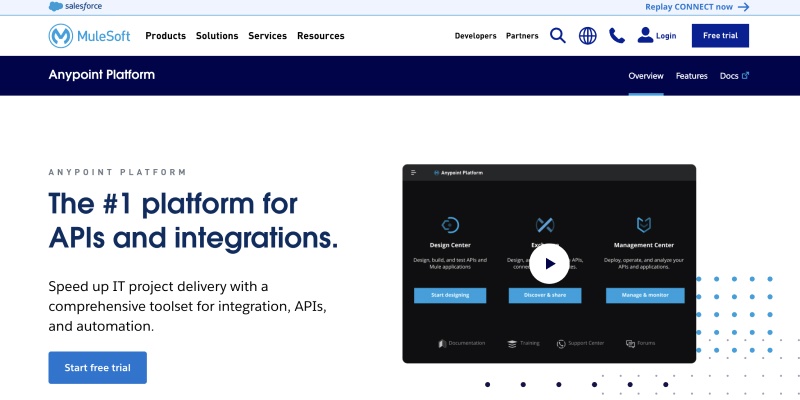
MuleSoft Anypoint Platform provides automated security, accelerated delivery, API management, and a solution that connects various cloud environments and business processes via a network. You can also flexibly monitor all the actions performed by your APIs. It represents a holistic, integrated solution that combines iPaaS, API management, and traditional Enterprise Service Bus (ESB) tools. His 3-tier API architecture is highly regarded by enterprises as a structured approach to API development and management. Mulesoft further extends that service with his Mulesoft Compose, a low-code solution that enables tight integration with Salesforce. This combination of solutions provides organizations with an integrated and comprehensive platform for managing integrations and APIs, enabling seamless data flow and operational efficiency.
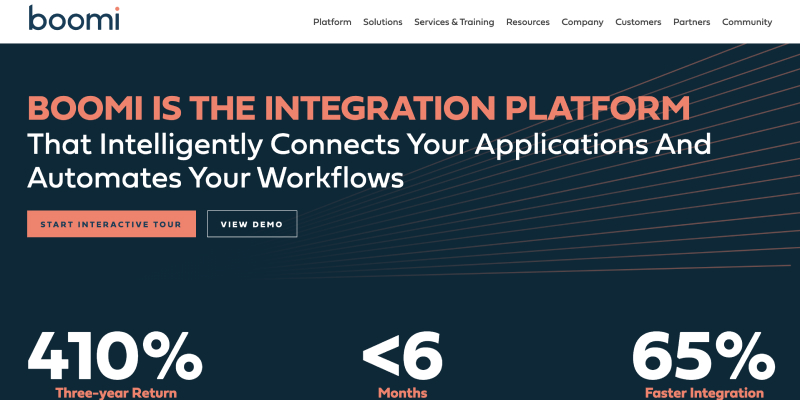
Boomi has a distributed architecture, low-code and visual UI, and an API manager. The Boomi Atmosphere platform offers application, data, and B2B/EDI integrations, along with API management, a low-code application development environment, and MDM capabilities. It is particularly effective for EDI-based integrations, providing a streamlined, comprehensive platform for businesses to manage their data, APIs, and integrations. The inclusion of a low-code application development environment further encourages business agility and innovation.
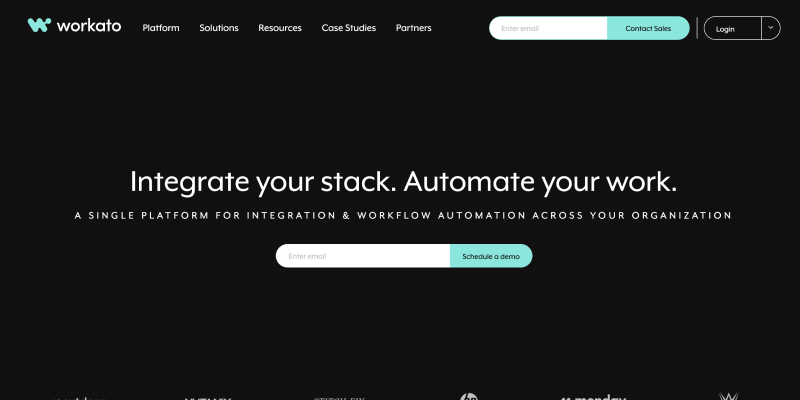
Workato possesses powerful capabilities for handling real-time applications and integrations and ensures smooth data transfer, security, reliability, and scalability. Workato offers Workato Enterprise Suite, Workato OEM and Workbot for iPaaS. Workato Enterprise Suite caters to the needs of large enterprises while providing a range of low-code integration tools for small businesses. With this suite of solutions, organizations of all sizes can benefit from simplified and streamlined integration processes that improve data flow, enhance collaboration, and increase operational efficiency.

AWS offers a collection of services — AppFlow, Event Bus, Workflows, and API Management — for communication between applications and cloud servers. AWS Application Integration encompasses various fragmented workflow/integration services on AWS, all primarily tailored to software engineering and IT users. These include AWS API Gateway, AWS AppSync, AWS EventBridge, AWS SNS, AWS SQS, Amazon MQ, AWS Appflow, and AWS Step Functions. By leveraging these tools, businesses can build, deploy, and manage their APIs, synchronize application data, handle event-driven computing, facilitate interprocess messaging, and automate workflows, all within the AWS ecosystem.
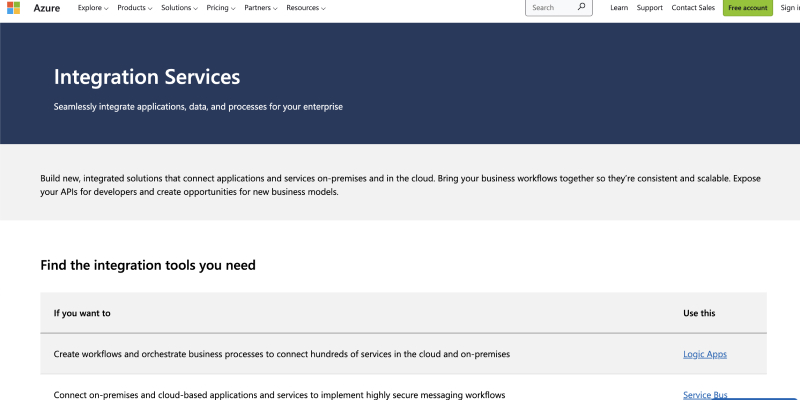
Azure Integration Services can carry out cloud integrations and can be paired with Azure API Management for API lifecycle management. Azure Integration Services combines multiple point solutions on Azure, including Azure Logic Apps, Azure API Management, Azure Service Bus, Azure Event Grid, and Azure Data Factory. This integrated service suite aids in creating workflows, handling mass event ingestion, connecting data pipelines, and establishing publish-subscribe services. By leveraging these services, businesses can create and manage sophisticated integration scenarios, automate workflows, securely expose and manage APIs, and effectively deal with large-scale data movements and event-driven architectures.

TIBCO Cloud Integration offers functionality for integrating applications, data, APIs, as well as B2B/EDI and IoT partners. It also includes features for automating processes. By consolidating all these capabilities into one platform, TIBCO Cloud Integration eliminates the need for multiple integration tools, thereby simplifying integration management. This integration platform aids in streamlining operations, enabling efficient data flow, and facilitating the development of a connected, unified digital ecosystem.
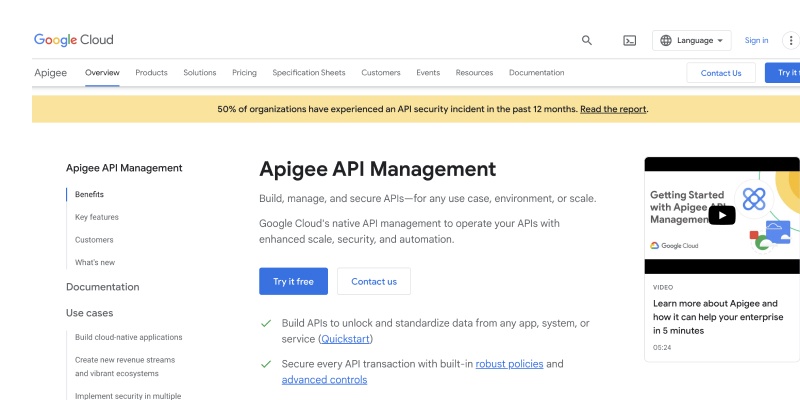
With Apigee Edge, users can build and manage APIs. It also provides analytics, rate limiting, and security.
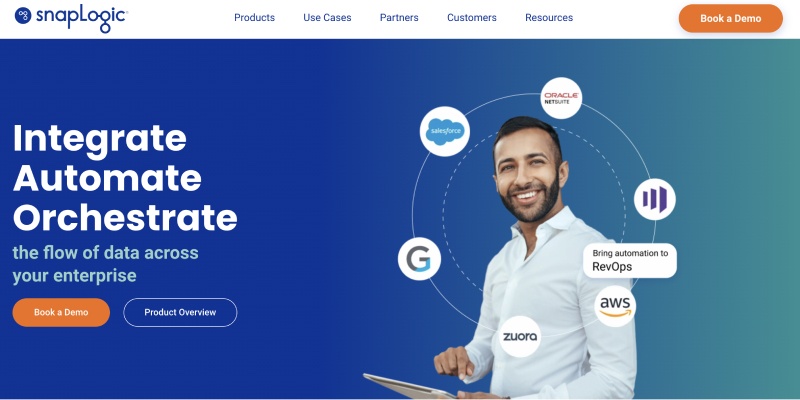
Snaplogic's Intelligent Integration Platform (IIP) focuses on enterprise application, data and API integration scenarios. IIP Connectors allow developers to manage reusable templates and leverage an extensive library of pre-built templates called Snaps. This capability enables organizations to quickly set up and manage integrations, improve efficiency, reduce time to market, and promote reuse of integration components.

Provides end-to-end integration of several APIs, cloud environments, etc. Major logistics service providers mostly choose it.
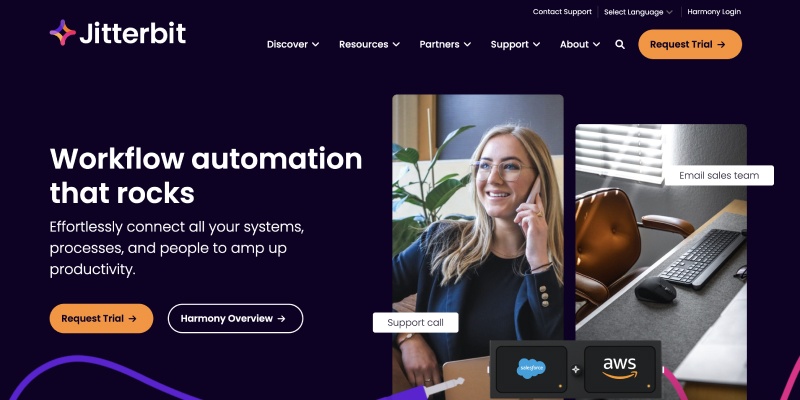
Jitterbit is an API integration platform where several business applications can be integrated quickly and effectively. Jitterbit's Harmony Platform provides easy-to-use tools for developing integrations and APIs and is primarily targeted at small and medium-sized businesses (SMBs). Its intuitive tooling approach simplifies the integration and API development process and makes it accessible to non-technical users. By removing the complexity of building and managing integrations and APIs, the Harmony Platform enables SMBs to streamline operations, improve data flow, and improve interoperability of business systems.
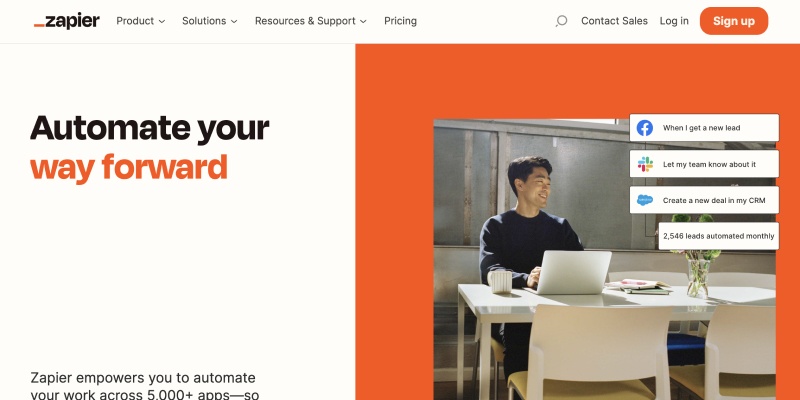
Zapier allows you to automate the workflow of business applications and connect your apps and services. Zapier is a no-code automation platform that allows users to create "Zaps", or automations, using a straightforward trigger-to-action flow. These automations are also easy to manage, reducing the need for continuous monitoring or manual intervention. Zapier is particularly popular for marketing and customer relationship management (CRM)-related use cases, providing non-technical users with the ability to automate repetitive tasks, streamline workflows, and improve data connectivity across various applications and services.
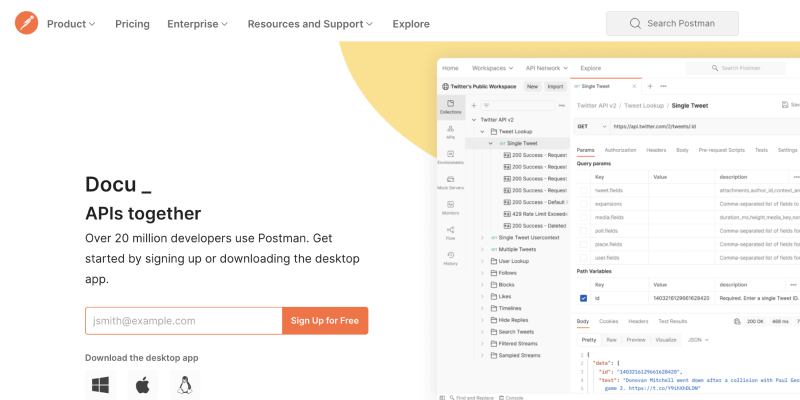
Postman is a widely used tool for creating and managing APIs. Workflow control and REST API testing are some of its popular features.

Celigo is an integration platform that automates the workflow for business application development. It’s widely used by PayPal and TITAN distributors. The main advantage of Celigo is that it is very user-friendly; even a non-technical user can use it well. Celigo provides a self-service platform with enterprise-wide integration capabilties for IT and business teams to work together and automate common business processes. Celigo’s iPaaS provides pre-packaged integrations and connectors, like the Celigo Integration Apps and Quickstart Templates. It also provides the Integration App Framework for clients and third parties to build and monetize custom integration apps.
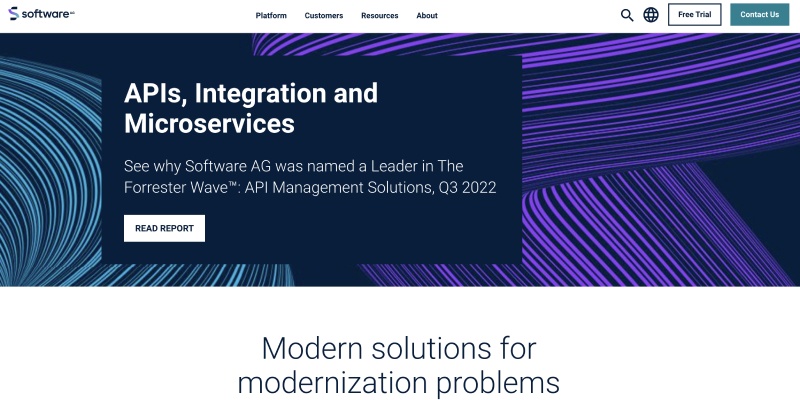
WebMethods.io Integration is a user-friendly integration platform offering a unique blend of capabilities, traditionally provided by ESBs, data integration systems, API management tools, and B2B gateways. This assortment of features provides users with a single platform to address multiple integration needs, reducing the complexity typically associated with managing several disparate systems. Consequently, users can create, manage, and integrate APIs more efficiently while also enabling effective B2B communications.
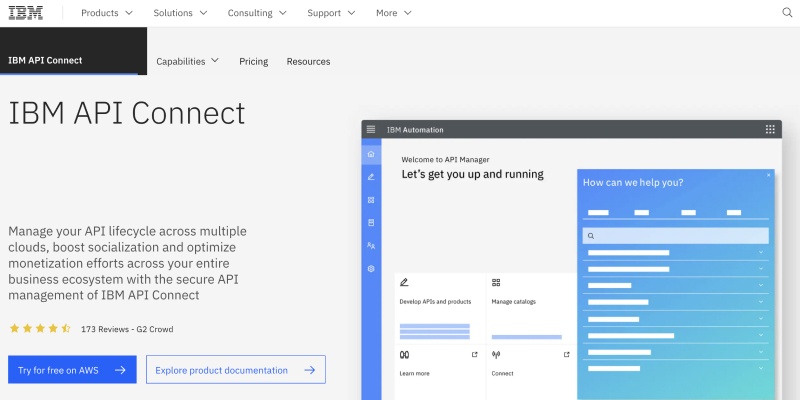
IBM Cloud Pak for Integration offers a multitude of services under one umbrella, including IBM App Connect, IBM API Connect, IBM DataPower Gateway, IBM MQ, IBM Event Stream, and IBM Aspera. This comprehensive suite of tools provides businesses with the capabilities they need to design, create, and manage APIs, enable secure data transfer, manage message queues, handle event streams, and accelerate file transfer processes. All these functionalities, combined in one solution, enable seamless integration and enhanced operational efficiency.

UiPath Cloud Elements is one of the leading API-based integration platforms providing UI automation capabilities.
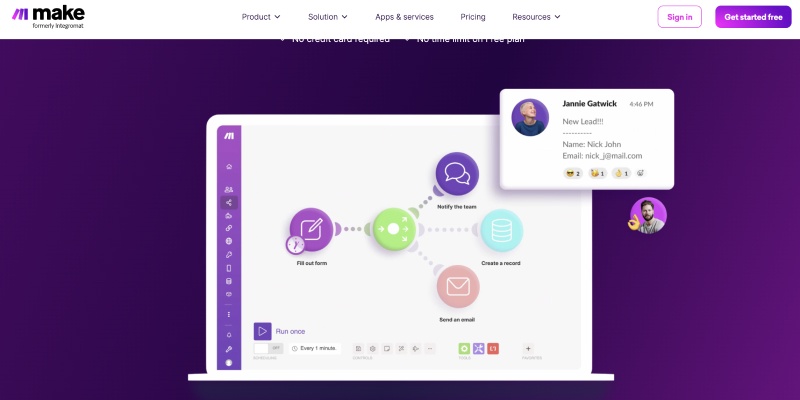
Integromat (now ‘Make’) is a platform that helps businesses integrate several apps and ensure the free flow of data.
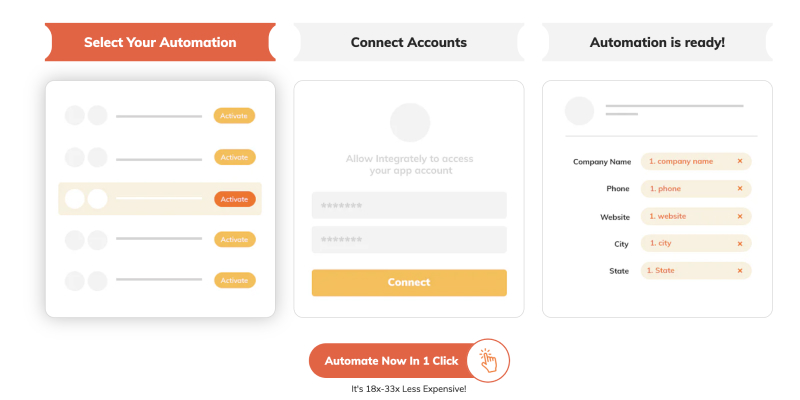
While limited in functionality, Integrately is 18-33x times cheaper compared to other iPaaS vendors in the market.

Informatica provides out-of-the-box solutions for data integration between databases, servers, and several cloud applications. Informatica Intelligent Cloud Services (IICS) is a platform aimed at supporting application, data, and B2B integrations. IICS is particularly known for its data integration use cases. The platform's value propositions revolve predominantly around enhanced data governance, data quality, and data management, thereby empowering businesses to control, manage, and derive valuable insights from their data while facilitating seamless integrations.
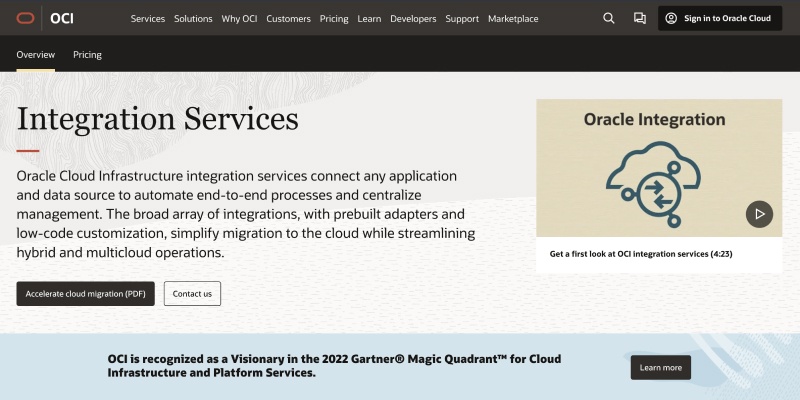
Oracle Integration Cloud is a comprehensive solution comprised of several point solutions available on the Oracle Cloud Infrastructure (OCI) platform. These include Oracle Integration, OCI API gateway, Oracle Data Integration, Oracle Streaming, Oracle SOA Suite on Marketplace, and Oracle IoT Cloud. This mix of solutions provides businesses with an extensive set of tools for integrating and managing their APIs, data, streaming services, SOA applications, and IoT devices, all within the Oracle ecosystem.
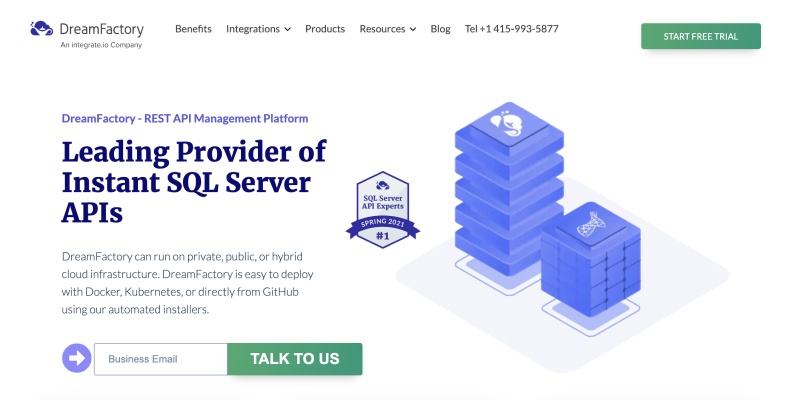
DreamFactory (owned by Integrate.io) is an enterprise integration platform introduced into the market as a Salesforce product. It is one of the leading providers of Instant SQL server APIs.
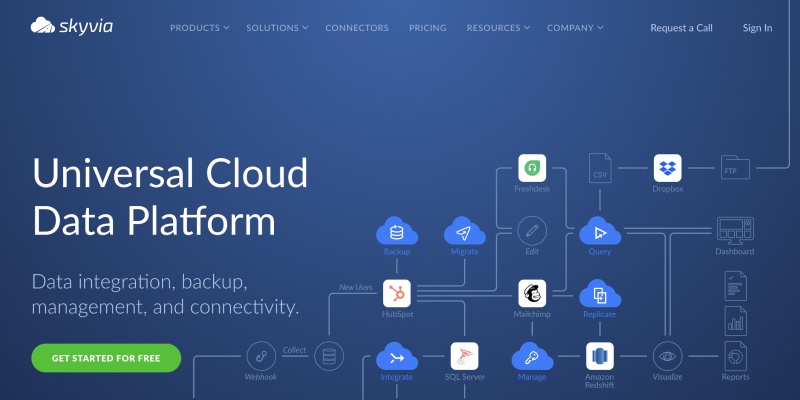
Skyvia is a universal cloud data platform that provides data integration, backup, management, and connectivity.
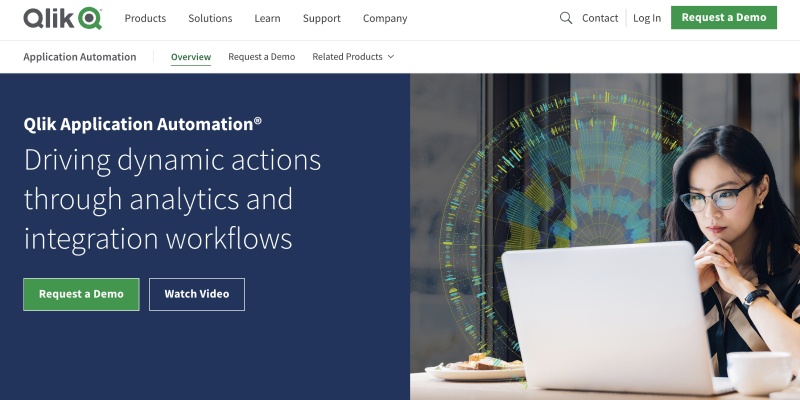
Qlik Application Automation (Formerly Blendri.io) provides no-code integration, UI embedding, API connectivity, data integration, and analytics.
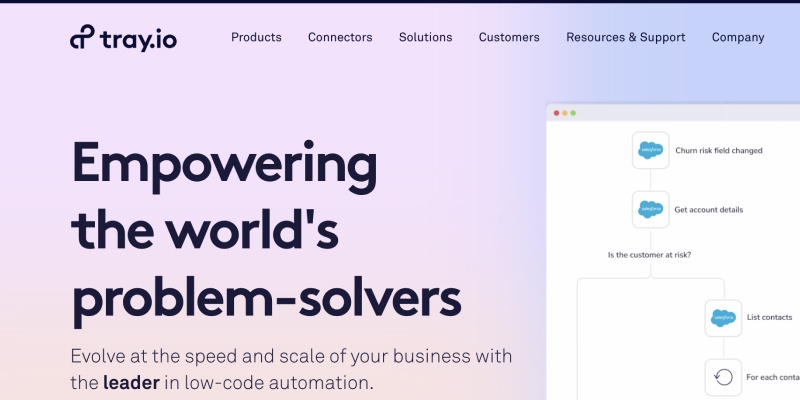
Tray.io offers two main services. Tray Platform and Tray Embedded. A key feature of Tray.io is its low-code collaborative user interface that appeals to “citizen developers” and industry users. The primary users of this platform are business users who value easy-to-use tools that come with a wide range of off-the-shelf solutions. This easy-to-use, low-code approach enables business users to build, manage, and integrate their own applications and workflows without requiring advanced coding skills.
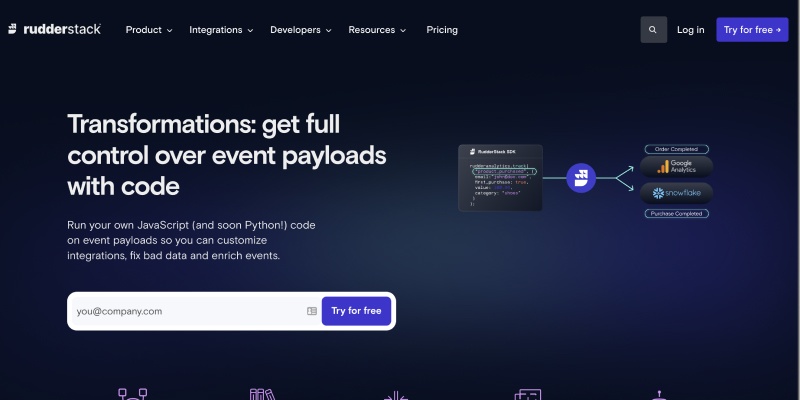
Rudderstack Cloud Extract allows you to collect raw events and other data from different cloud platforms such as Google Analytics and leverage advanced bi-directional pipelines.
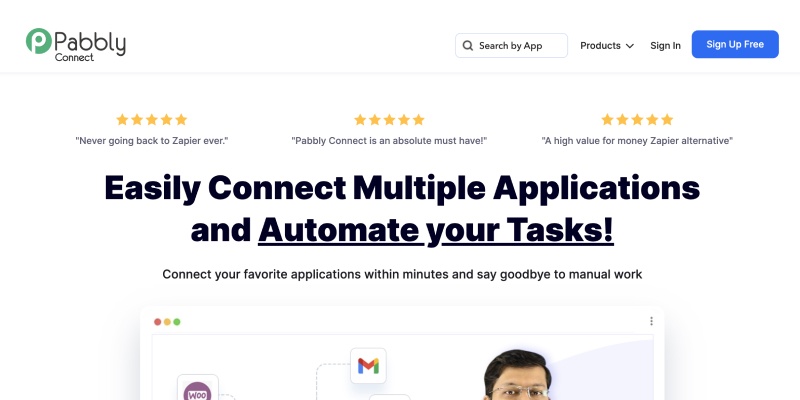
Pabbly Connect helps you integrate applications for a free flow of data between multiple apps. It’s a potential substitute for Zapier.
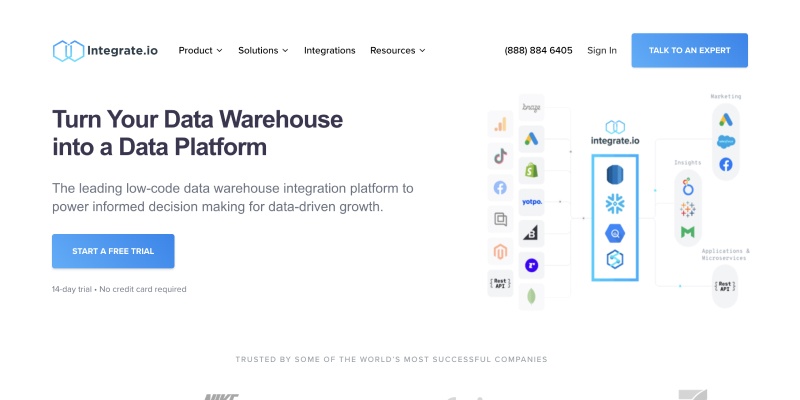
Integrate.io (formerly Xplenty) is a low-code integration tool that provides data security and business intelligence features.

Talend Data Fabric offers a unified platform for integrating data, maintaining data integrity, and governing data, thus facilitating superior data management. Its suite of products comprises Cloud Data Integration, Cloud Data Management, Cloud Data Loader, Cloud Real-Time Big Data Integration, Cloud Data Catalog, and Cloud API services. These tools offer extensive support for ESB and EDI, thus covering a wide array of data management and integration needs. This combination of tools allows organizations to have a unified, end-to-end solution for their data-related challenges.
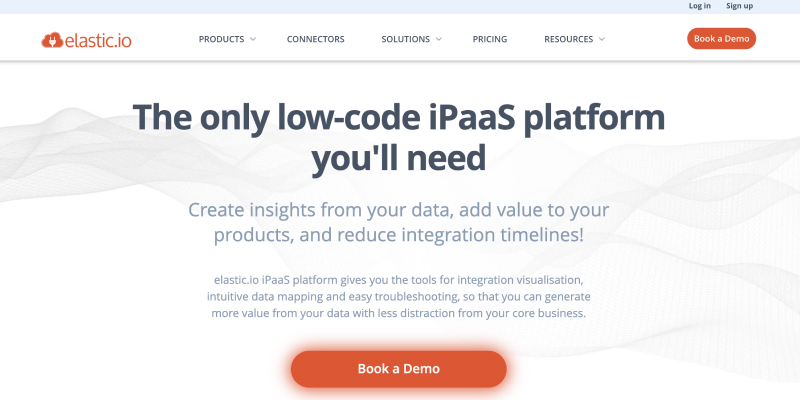
Elastic.io provides multiple solutions such as cloud integration, API integration, data migration, mobile integration, etc.
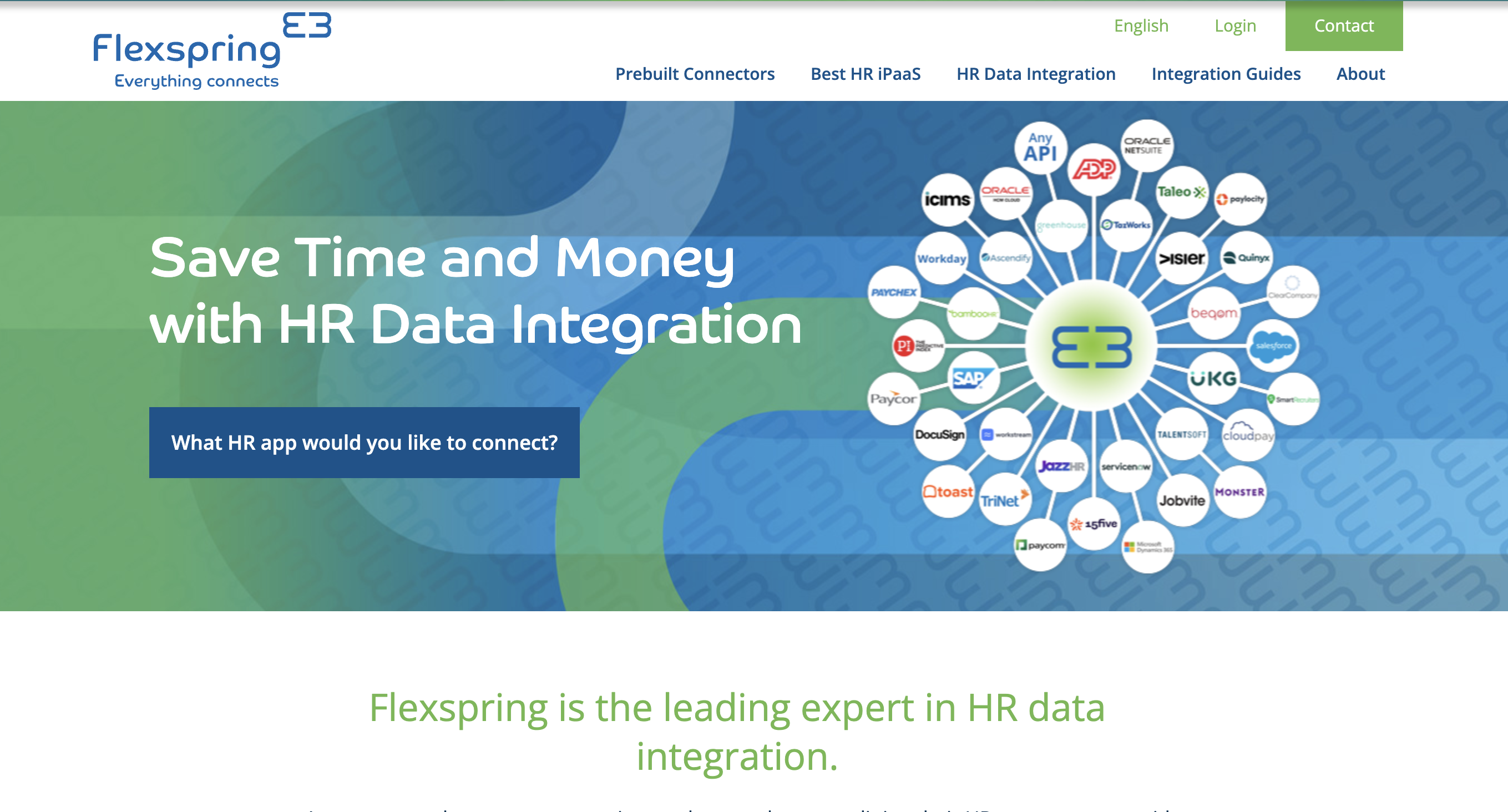
Flexspring (formerly Modulus Data) is one of the leading software companies for HR data integration and has built more than 2500 custom integrations.
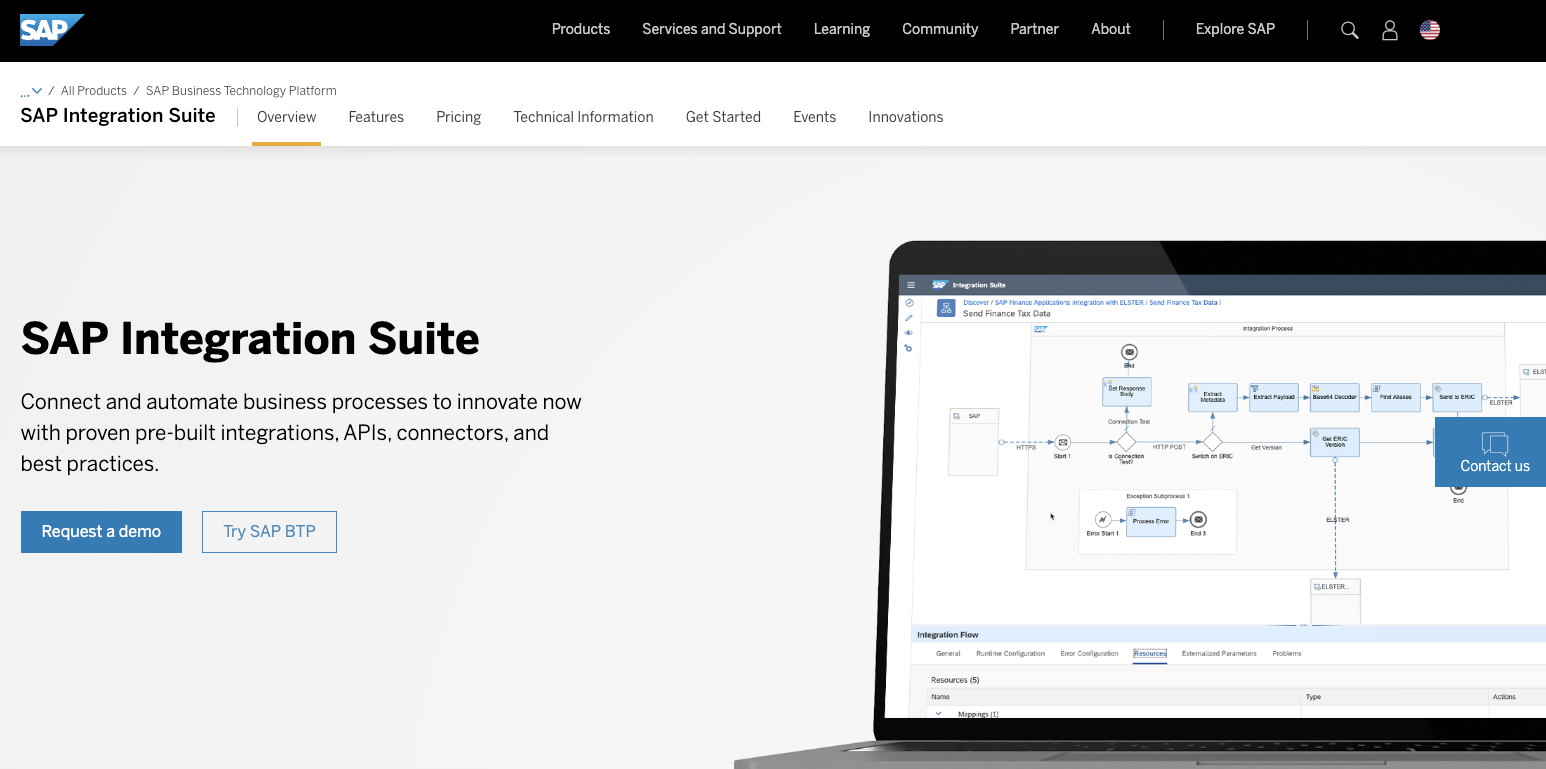
SAP Integration Suite, part of the SAP Business Technology Platform (BTP), provides comprehensive business integration capabilities along with event broker support, RPA, and MDM-related features. In addition to the SAP Integration Suite, SAP hosts an API business hub comprising a vast array of reusable integration templates and integration content tailored for specific business processes. These capabilities make SAP IS an all-encompassing solution for businesses seeking robust, tailored integration capabilities in a single platform.